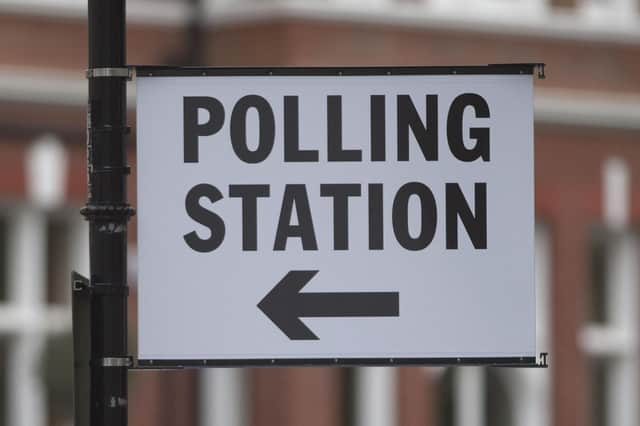Owen Polley: The election is set to be an ill-tempered and divisive one based on the Northern Ireland Protocol


This is good news for political nerds and bad news for recycling bins, which will soon groan under the weight of thousands of unwanted candidates’ leaflets.
The campaign is sure to be an ill-tempered, divisive one, shaped by disagreements over the Northern Ireland Protocol. The parties that are basically supportive of an Irish Sea border, ie nationalists, the Greens and Alliance, will play down this idea, insisting that people are more concerned with other issues.
Advertisement
Hide AdAdvertisement
Hide AdThey will point to polls that suggest voters care most about the health service and the economy. But this argument is not persuasive, to say the least.
If people are asked outright whether health and the economy are important to them, naturally they will agree. Everyone wants to be prosperous and well.
As the economist Esmond Birnie showed recently in this paper, though, the protocol affects the buying power of consumers directly. As the cost of living rises, the sea border is likely only to push the price of goods in Northern Ireland even higher. It is intimately linked with the economy and with the amount of spare cash we have in our pockets.
The same polls that are being used to suggest it is a matter of secondary importance show that the vast majority of voters intend to vote for candidates who reflect their views on the protocol closely. And they think that the sea border is undermining political stability in Northern Ireland.
Advertisement
Hide AdAdvertisement
Hide AdThe fact that the protocol would be the key election battleground was reinforced when Paul Givan resigned from the first minister’s post. Most of its rivals, including the Ulster Unionist Party, have attacked the DUP for this decision ever since.
They imply that the executive would have delivered all kinds of goodies, if its term had not been cut short by a few weeks.
This election will be contested by some parties that want the protocol issue to go away and others that say things cannot go back to normal until it is sorted out.
In fact, the prominence of the sea border has exposed a paradox at the heart of devolved government. The smaller executive parties usually run on a platform that points out the inadequacies of power-sharing, as dominated by the DUP and Sinn Fein.
Advertisement
Hide AdAdvertisement
Hide AdNow, they’re making the case that ministers are effective, when they’re in place. They’re selling the rather unconvincing assertion that Stormont makes a beneficial difference to our daily lives.
The electoral landscape in Northern Ireland features one glaring gap. We do not have a party that is prepared to tell difficult truths about the limitations of spending public money or the need for radical reforms of services like health and education.
The various reports that recommended changes to the NHS remain un-implemented, for example, and the same is true of plans to cut back the school estate so that it reflects the number of pupils and features fewer empty desks.
No party currently advocates the end of popular giveaways, like bus passes or free prescriptions, so that more money can be invested in the economy and infrastructure. The idea that separate water charges should be introduced to fund a modernised water system has not been articulated at the assembly for years.
Advertisement
Hide AdAdvertisement
Hide AdIn short, no party is ready to be honest, and stand up for responsibility and competence.
The smaller parties criticise their opponents in Stormont, but they’re deeply implicated in the same system and its short-sighted, populist mindset. To be fair to them, this is partly because populism is built into devolution, which encourages regional politicians to claim credit for things that had little to do with them and blame shortcomings on central government.
Apart from a lot of bad-tempered exchanges and exaggerated claims, then, what can we expect from this election?
The complexities of the single transferable vote system make it difficult to predict the likely composition of the assembly.
Advertisement
Hide AdAdvertisement
Hide AdEven if Sinn Fein takes the highest percentage of first preference votes, it’s far from certain that this means it will hold most seats. The DUP’s performance in opinion polls has stabilised and its belated departure from the executive may stop anti-protocol votes from leaking in large numbers to rival parties.
At recent elections, Alliance performed relatively well, but its stance on the sea border has ricocheted from ‘rigorous implementation’ to ‘mitigation’. In traditionally unionist areas, which are still its heartlands, the party may attract fewer transfers than it would normally expect.
We can be relatively sure, though, that whatever the final composition of the assembly, the issue of the protocol will be no closer to resolution when the parties try to form an executive in May. And Stormont’s future will remain highly uncertain until that is sorted out.